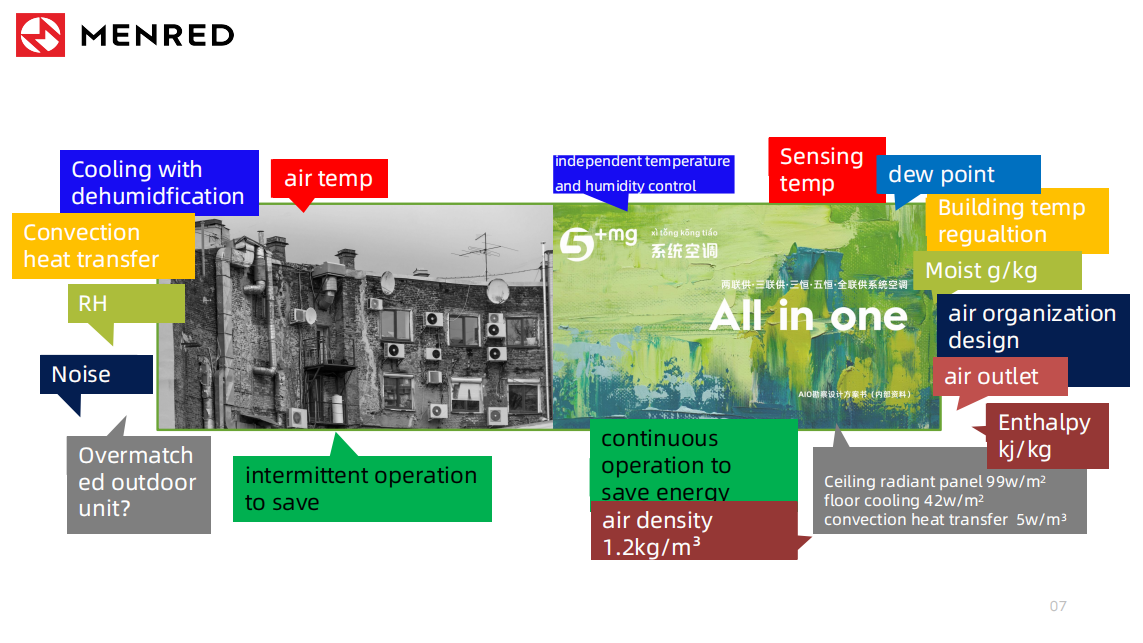Indoor air quality (IAQ) has a direct impact on our health, productivity, and comfort. Yet, it often goes unnoticed—especially in modern, airtight buildings designed for energy efficiency. The truth is, the air we breathe indoors can be several times more polluted than outdoor air.
Modern HVAC systems are evolving beyond heating and cooling. They now play a crucial role in managing indoor oxygen levels, filtering airborne pollutants, and balancing humidity—all of which are essential for human health.
Common IAQ Challenges in Buildings
Without proper ventilation and filtration, indoor air can harbor a range of pollutants:
- Carbon dioxide (CO₂) buildup leads to fatigue, drowsiness, and decreased concentration.
- Particulate matter (PM2.5, PM10) from outdoor air or indoor combustion can affect respiratory health.
- Volatile organic compounds (VOCs) from furniture, paints, and cleaning products can irritate the eyes, nose, and throat.
- Imbalanced humidity promotes mold growth or causes dry skin and respiratory discomfort.
These challenges are especially significant in homes, offices, schools, and healthcare spaces.
How Modern HVAC Systems Improve Air Quality
HVAC systems equipped with smart sensors and advanced control logic can significantly enhance IAQ:
- CO₂ monitoring: Smart sensors detect air quality and trigger increased ventilation when needed.
- Multi-stage filtration: Pre-filters, HEPA filters, and activated carbon remove dust, pollen, odors, and fine particles.
- Energy recovery ventilation (ERV): Devices like Menred G3 and G4 units exchange stale air with fresh air while recovering up to 65% of heat or moisture.
- Humidity control: HVAC systems maintain stable relative humidity, preventing mold or excessive dryness.
Together, these systems create a more balanced and breathable indoor environment.
Menred Fresh Air Solutions for Healthy Spaces
Menred offers a full range of smart ventilation products designed to improve IAQ in residential and commercial spaces:
- G3 Energy Recovery Ventilator: Ultra-quiet operation (<30dB), PM2.5 purification rate >95%, ideal for bedrooms and nurseries.
- G4 Enthalpy Heat Recovery Ventilator: Includes enthalpy exchange core for humidity balance and energy-saving up to 65%.
- IEC5.350E Commercial Ventilator: Flexible air volume adjustment, intelligent sensor control, suitable for offices and classrooms.
- Integrated control: Compatible with RT smart thermostats and CO₂ sensors for automated, demand-driven air management.
Whether in homes, schools, or clinics, Menred’s systems are engineered for health, efficiency, and ease of integration.
Application Scenarios
- Children’s rooms: Whisper-quiet ventilation ensures clean air without disturbing sleep.
- Elderly care spaces: Balanced humidity and VOC control reduce respiratory stress.
- Open-plan offices: Smart CO₂ monitoring prevents concentration drops and stale air.
- Educational facilities: Fresh air and particulate control help maintain focus and well-being in classrooms.
Conclusion: Breathe Smart, Live Bette
The quality of the air we breathe indoors is more important than ever. By incorporating smart ventilation systems that actively respond to indoor pollutants, humidity levels, and CO₂, buildings become healthier, more productive, and more comfortable.
Menred’s fresh air solutions bring smarter air—and better living—to every room.
MENRED HVAC
MENRED HVAC



